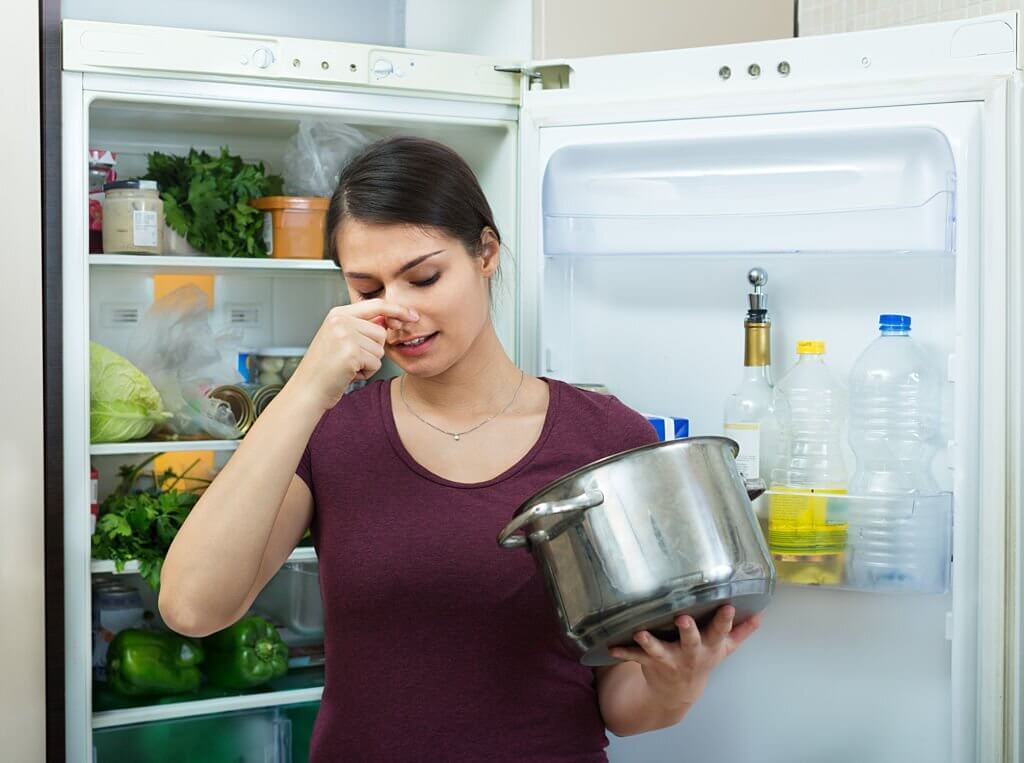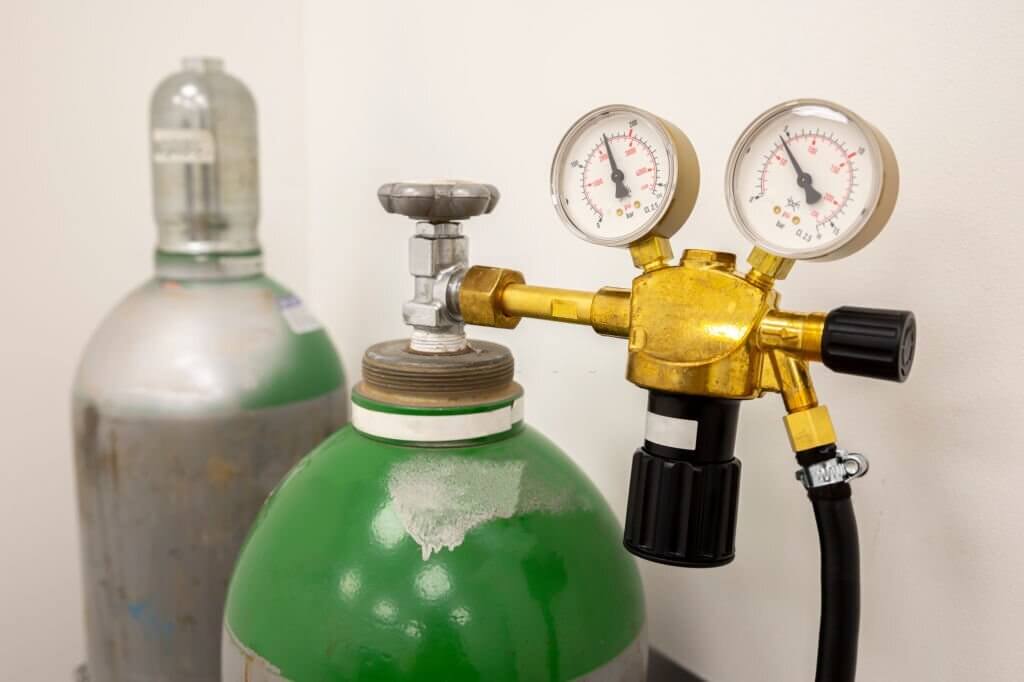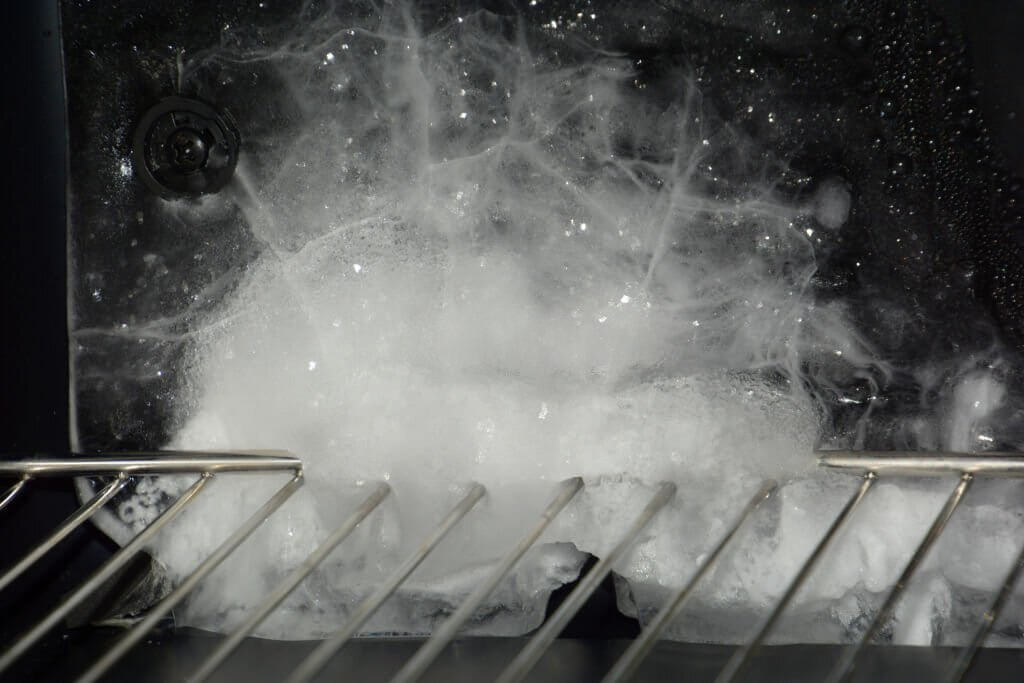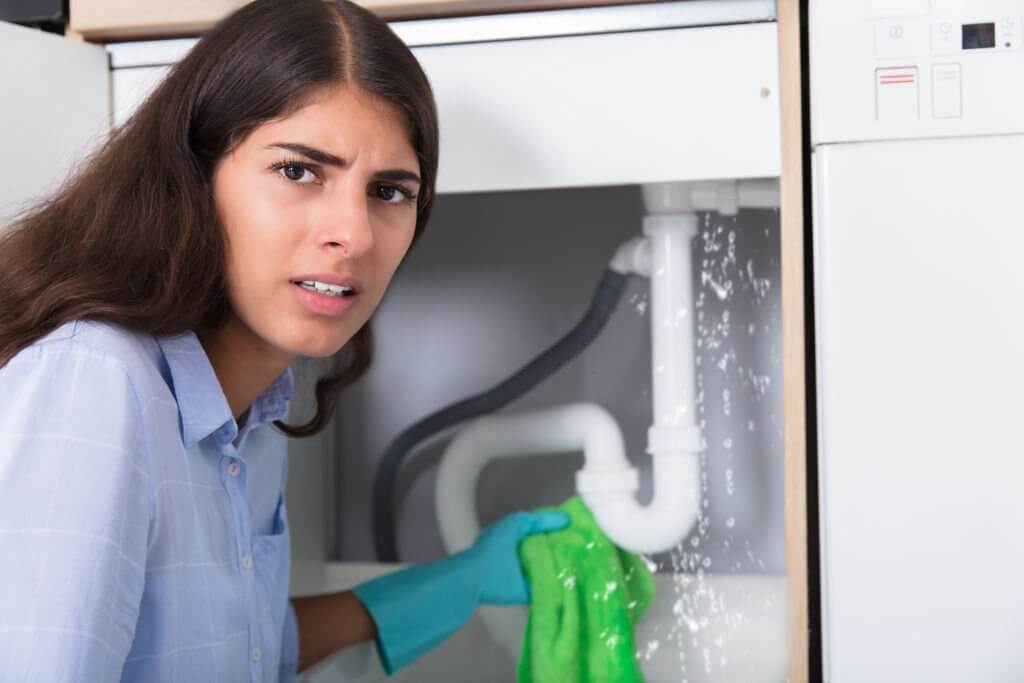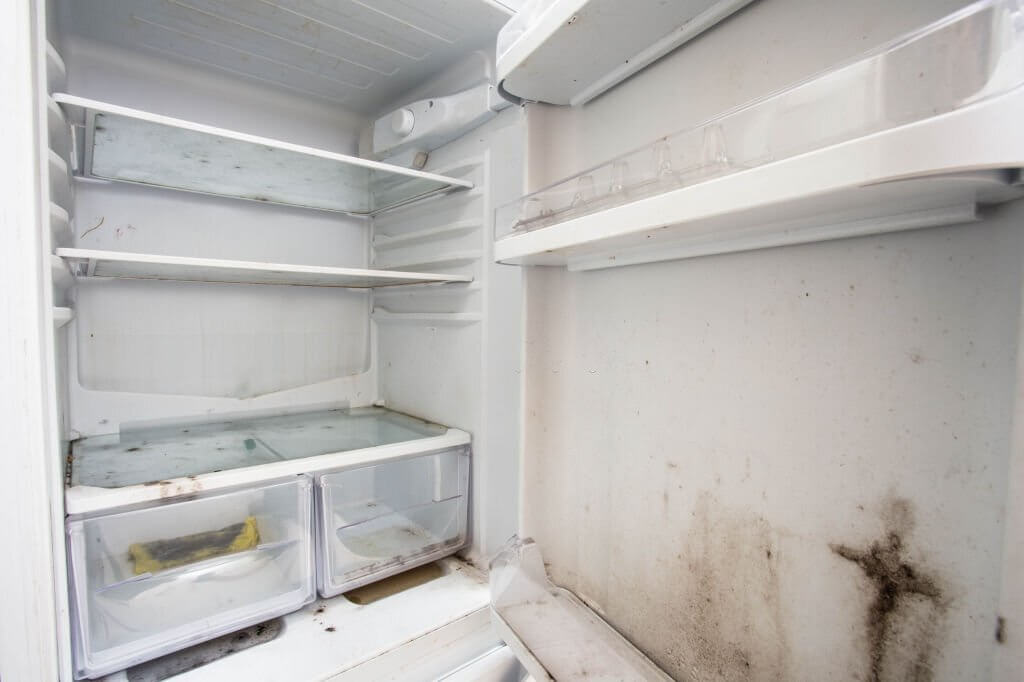A fridge may smell like chemicals sometimes because normally the fridge requires chemical refrigerants to maintain low temperatures and keep food, drinks, and other items cold. Unfortunately, in some cases these chemicals may produce an unsavory odor.
When this occurs, it’s essential to identify and resolve the problem quickly. Sometimes, the cause could be as straightforward as a leak in your fridge’s coolant system.
What Is The Source Of The Smell?
Opening your fridge and being met with an unpleasant chemical smell that lingers for weeks can be quite annoying. Whether you forgot about that bag of spinach or let your milk go past its expiration date, these unpleasant smells are typically due to bacteria or mold growth.
Many things might cause a fridge to smell like chemical. If the refrigerator isn’t aired correctly, it’s possible that contaminants are accumulating within.
Another option is that the fridge isn’t clean, which would allow food or other organic materials to continue to decompose while producing the odor.
It can possibly be odor left behind from the cleaning supplies you’re using. Use natural, non-toxic cleaning to prevent this issue.
Last but not least, it’s conceivable that the refrigerator is actually spewing chemicals as a result of refrigerant leakage, which might be an indication of a more serious issue.
Investigate the cause first so you can respond appropriately if you smell something chemical coming from your refrigerator.
What Does Freon chemical Smell Like In A fridge?
Freon is a refrigerant gas that helps your refrigerator keep foods, drinks and produce chilled and fresh. If you detect Freon in your fridge, it could be indicative of an impending leak that should be addressed promptly.
This gas is composed of various chemicals, such as carbon, fluorine, chlorine and hydrogen. It has no odor or taste but can be hazardous when inhaled.
Freon levels in refrigerators can reach dangerous heights, leading to dizziness and breathing issues.
You may experience symptoms like nausea, headaches and itchy eyes and skin. These effects can last 24-48 hours or longer depending on how much airborne pollution you breathe in.
Therefore, it’s critical to address any leaks as soon as possible in order to avoid serious health complications. If you suspect your fridge might be leaking Freon, contact a professional who can inspect the appliance.
Can A Refrigerator Emit Toxic Fumes?
A refrigerator is a device designed to maintain food freshness by keeping it cold. To do this, the fridge uses Freon – an environmentally friendly chemical refrigerant.
When a fridge leaks Freon, it can give off an unpleasant chemical odour that’s difficult to ignore. While small amounts of this gas are not toxic, large amounts can be quite unpleasant for human noses.
Freon, as previously discussed, is a chemical refrigerant used to keep food cool by making it less susceptible to bacteria growth. When this gas seeps out of your refrigerator, however, you may notice an almost indistinct smell from other air around it.
However, if you suspect your fridge is emitting a chemical smell, contact an expert to diagnose the problem and ensure it’s fixed. A Freon leak could also impact how well your fridge runs as it will take longer to cool down.
Appliances such as refrigerators can release toxic gases when they malfunction or experience an issue. While this is a normal side effect of normal usage, when these quantities exceed what should be present it signals serious trouble ahead.
Can A Refrigerant Leak Make You Sick?
A refrigerant leak is a major issue for any air conditioning system, as it reduces efficiency and makes your home use more energy. Furthermore, inhaling refrigerant gas could prove hazardous if you come into contact with it.
Refrigerants, also known as fluorinated hydrocarbons, are a ubiquitous part of cooling appliances. Although odorless and tasteless, these substances can be toxic if inhaled or ingested in large amounts.
Excessive inhalation of refrigerant gas can cause dizziness, shortness of breath, loss of coordination and poor concentration. It may also cause skin rashes, chemical burns or frostbite in severe cases.
Can A Refrigerant Leak Damage The Refrigerator?
Refrigerators use refrigerant to cool food inside. It works by absorbing heat from the air and expelling it through coils. While this is an essential process for keeping food fresh and chilled, there is also a risk of refrigerant leakage.
Refrigerant leaks are an unfortunately common occurrence that can damage your appliance and lead to more serious problems in the future. They may be caused by various factors, but one of the most prevalent is a pinhole puncture in one of its components that holds or transports refrigerant.
In such cases, a professional must patch the hole with either metal or epoxy-like material. Unfortunately, this isn’t usually a quick fix since the patch takes time to dry and harden.
What Should I Do If My Refrigerator Smells Like Chemicals?
Opening your fridge and finding it smells chemical-laden can be a disheartening experience, particularly if you just spent considerable effort cleaning it.
Thankfully, there are a few straightforward solutions to this dilemma.
First, use hot water and dish soap to thoroughly clean the inside of your fridge. Doing this will eliminate any bacteria that has formed inside.
Additionally, you should discard any rotting food or old ice that may be causing the smell from your fridge. After doing this, the odor should go away and you can safely use your fridge again without fear of contamination.
Another way to eliminate chemical smells from your fridge is by using baking soda. After cleaning the interior of your fridge, place a box of baking soda inside. After one week has passed, baking soda should have completely absorbed any unpleasant odors from within your refrigerator.
How To Prevent My Fridge From Chemical Smell
Even well-maintained refrigerators can develop unpleasant odors over time. Spilled food, spoilt foods and expired items are often to blame for these unpleasant aromas.
Although it’s impossible to completely rid your fridge of these smells, you can help reduce their frequency and intensity by regularly cleaning its seals, taking out shelves, bins, and crisper drawers. Additionally, make sure you clean the evaporator – that element that distributes cool air throughout your fridge – which disseminates cool air throughout.
Once you’re finished cleaning, be sure to let the fridge air out for several days so that any chemical smells can fade away. You may also place a bowl of baking soda inside to absorb any remaining odors.
Conclusion
The initial and most straightforward step to eliminating fridge odors is throwing out anything that has been sitting around for more than one week. While this may seem like a daunting task, it’s one that will save both time and money in the long run.
Once that’s done, it’s time to attack that pesky ice box head-on. While this may require some elbow grease, once the smell has been brought under control and for good, you won’t have to endure it for another few months or so.

